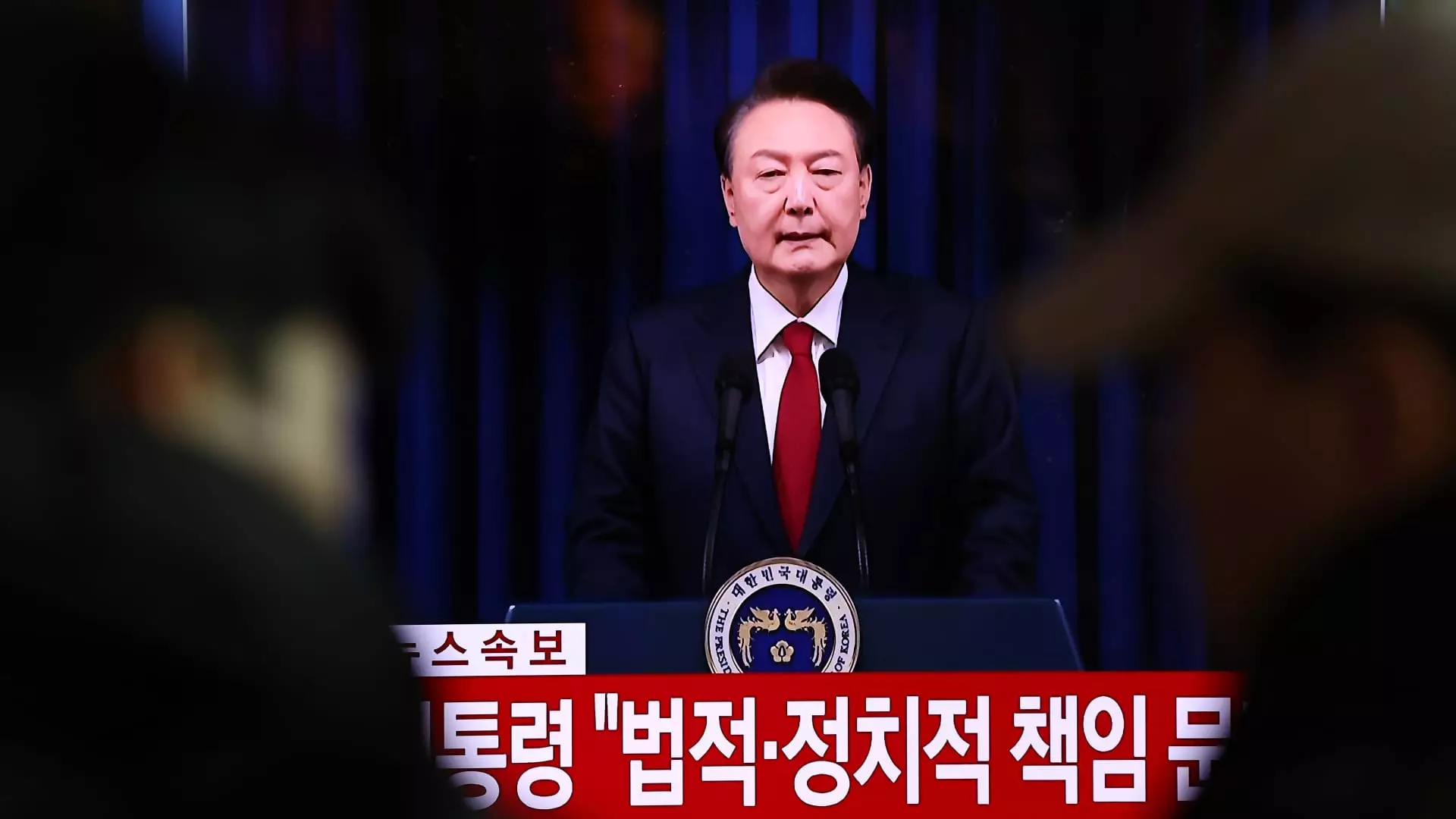On a dramatic Saturday, the political landscape of South Korea was irrevocably altered as President Yoon Suk Yeol faced impeachment. This incident arises against a backdrop of increasing political instability and public dissatisfaction. The impeachment vote came swiftly in the aftermath of an ill-fated attempt by Yoon to impose martial law, a move that stirred a significant outcry and calls for accountability. The necessity for a presidential election within 60 days following such an event signals a critical juncture in South Korea’s democratic processes.
Yoon’s initial attempt to instate martial law on December 3 was abruptly rolled back within hours, but not before it raised severe doubts regarding his capability to govern effectively. This precarious moment came after the President cited the necessity to “protect the constitutional order” and eliminate perceived threats to national security. The invocation of martial law in a country that has recently experienced authoritarian rule struck a nerve among citizens, leading to heightened tensions and widespread protests.
Previously, an impeachment motion had been rejected on December 7 due to a lack of necessary votes. Notably, Yoon’s own People Power Party (PPP) was marred by internal discord, causing many lawmakers to walk out of the session. Fast forward to the recent vote, and the political terrain appears markedly different, with PPP leader Han Dong-hoon endorsing impeachment discussions. The change of heart within the ruling party underscores a fracturing of support for Yoon, as confidence in his presidency faltered amidst mounting scandals, particularly those involving first lady Kim Keon Hee.
The implications of this shift are profound, as the composition of the National Assembly becomes crucial in deciding not only Yoon’s fate but also the future direction of South Korea’s political agenda. Opposition lawmakers have stood firm in their quest to hold Yoon accountable, drawing focus to significant lapses in his administration and his handling of crises. This change in party allegiance signifies a critical moment where political loyalty is weighed against ethical governance.
Widespread Discontent and Public Protests
As Yoon’s approval ratings plummeted to a staggering low of 17.3%, public frustration became palpable. This widespread discontent has rallied citizens to peaceful protests demanding his resignation. The rallies reflect more than just a response to one leader’s inadequacies; they symbolize a broader demand for transparent governance and accountability within South Korea’s political system. Yoon’s comments during his national address, wherein he defended his actions and accused opposition parties of political theatrics, further alienated him from a populace eager for change.
In recent history, South Korea has experienced the removal of high-profile leaders, with Roh Moo-hyun and Park Geun-hye both ousted through impeachment processes. This historical context serves as a reminder of the volatility inherent in South Korean politics—yet it also serves as a testament to the resilience of democratic institutions that can withstand such tumult.
The uncertainty stemming from Yoon’s impeachment carries significant repercussions for the economic health of South Korea. As the fourth-largest economy in Asia, the stability of South Korea is essential not only for its citizens but also for international markets. The chaos following the impeachment vote has caused immediate market volatility. However, as observed by investment analysts, there is a hopeful narrative emerging within the local economy, particularly in sectors like technology and artificial intelligence (AI).
John Woods from Lombard Odier noted that while current political tensions merit scrutiny, the long-term outlook centers around the inherent economic resilience of South Korea. The International Monetary Fund has predicted a 2.5% growth rate for the economy this year, demonstrating that despite political turmoil, economic fundamentals can remain intact.
The impeachment of President Yoon Suk Yeol represents a critical moment in South Korea’s ongoing struggle for democratic integrity and effective governance. The circumstances surrounding this political upheaval provide a lens through which to observe the interplay between leadership, public sentiment, and institutional accountability. With elections looming and political factions realigning, the decisions made in the coming weeks will indelibly shape the landscape of South Korean politics and its economic trajectory for years to come. The resilience of its democracy will be tested once again, and how the nation responds could set a precedent for future governance.



Leave a Reply